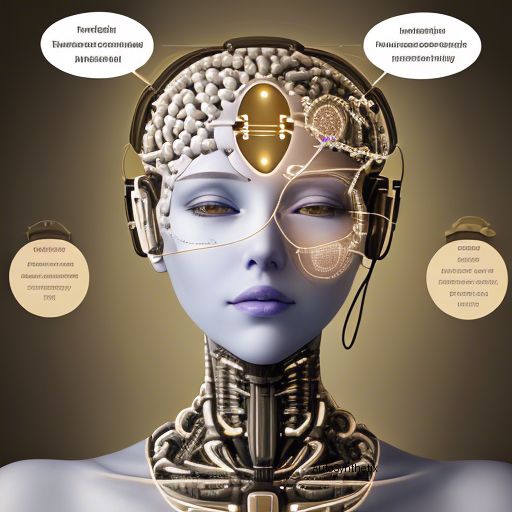Introduction: In today's fast-paced world, mental health care remains a pressing concern often overlooked amidst daily hustle. As a result, innovative approaches leveraging modern technology have gained traction recently. One such groundbreaking development comes via a new framework named "ERD," designed explicitly to improve large language models' (LLMs') efficacy in identifying cognitive distortions during therapeutic interactions. The research published by a team strives to revolutionize how psychological support unfolds using artificial intelligence tools. Let us delve into their fascinating endeavors.
The Problem at Hand - Bridging Psychology & Computation: Cognitive Behavioral Therapy (CBT), widely recognized for its effectiveness, relies heavily upon therapists' ability to identify patients' misconceptions or irrational beliefs, commonly termed 'cognitive distortions.' However, the demand for professional help consistently surpasses supply, leaving many individuals unattended due to limited resources. This gap instigates the need for alternative solutions that could offer scalable assistance without compromising quality. Herein lies the potential of Large Language Models like GPT-series, trained on vast text corpora, enabling them to comprehend human speech patterns intrinsically. Consequently, these models hold immense promise when tapped into recognizing cognitive distortions within conversational data.
Enter ERD – An Innovative Approach to Ameliorate LLM Performance: "ERD," short for Extracting-Reasoning Debate, presents itself as a novel solution addressing challenges associated with conventional methods. Traditional techniques face limitations owing primarily to two factors; firstly, they fail to isolate segments relevant specifically to cognitive distortions, secondarily, the lack of diverse perspectives while evaluating the context leads to suboptimal outcomes. To counteract these drawbacks, the proposed system integrates two crucial components:
1. Particularization - Identifying portions containing cognitive distortion cues in input texts. 2. Multi-Agent Discussion - Introducing divergent viewpoints through simulated dialogues among synthetic characters, enhancing the model's decision-making process.
Experimental Results Proof Positive: To test the veracity of claims made regarding ERD's efficiency, experiments were conducted employing a publicly available benchmark dataset. Encouraging findings revealed a marked improvement in multiclass F1 scores alongside enhanced binary specificity metrics over existing baselines. Notably, the study underscored ERD's proficiency in mitigating biases inherent in traditional strategies plagued by heightened false positives rates, particularly after incorporating a synthesized discourse report generated by multiple agent deliberations.
Conclusion: Pioneering work spearheaded by researchers highlights the transformative impact of combining psychology, natural language processing, and computational ingenuity towards advancing accessible mental healthcare services. By presenting a robust architecture in the guise of ERD, the scientific community takes another step closer toward democratizing much-needed psychotheraputical guidance irrespective of geographical boundaries or socioeconomic status quos. With continued R&D efforts along similar lines, one envisions a near future where intelligent assistive systems become commonplace in everyday life, fostering holistic individual growth unencumbered by social barriers.
References: ArXiv Link: https://arxiv.org/abs/2403.14255v1 (Note: Original author names omitted per instructions.)
Source arXiv: http://arxiv.org/abs/2403.14255v1
